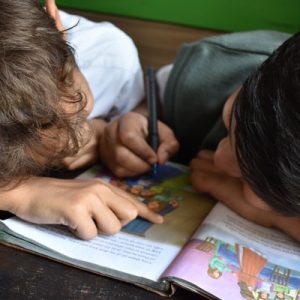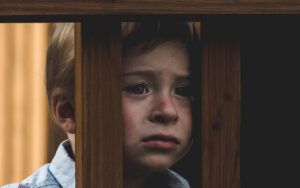The current situation has not just affected the country economically but also has had a devastating impact on global education. According to a report from UNESCO, close to 1.6 billion were to be out of school in 161 countries. That is close to 80% of the world’s enrolled students. But are they really enjoying or benefitting from the online learning enforced upon them considering the current climate we are in? Let’s find out.
“Children have begun to showcase their want to come back to school. Oftentimes during my class with them online, they tell me “Ma’am when is the school reopening?” “We miss our friends and coming to school”, said Ms. Lilly Chatterjee (Primary grade school teacher at St. Xavier’s Mirzapur). Homeschooling has been a norm since the past 5 months and now children innocently have expressed their views of wanting to come back to school. Schooling is an important part of every child’s life. Not only the educational aspect but also it being the first place for them to ‘socialize’ and develop a ‘personality’. Being stuck at home takes away these tiny joys from the tiny ones.

Online learning is implemented continuously to mirror individual needs of the students and create a ‘personal’ environment for them to learn. Teachers have turned into content curators in order to conduct lectures, take attendance, maintain marksheets and teach children. Orthodox lecturers are already finding it tough to teach kids through this medium due to the lack of expertise in the digital space. The connect between the teacher and the children is slowly getting disrupted due to the absence of each other’s company. According to Ms. Nikita Desai (Global Coordinator, Design for Change), “With the lockdown and having all the schools closed, children are surely missing out on the human interaction, building relationships and learning a lot through playing with children their own age. However, I would like to look at this current scenario with a lense of optimism. Pandemic came as a blessing for these digital natives where use of different technological tools is unavoidable. Teachers had to learn using these tools overnight while children were already masters of it. Lots of children have been able to share their passion and interests by putting up YouTube videos, going live on Instagram/Facebook and, also by writing blogs”.
India isn’t new to the digital educational space. With programs like Diksha, e-Pathshala, NROER (National Repository of Open Educational Resources) etc have been in existence for a while now. Diksha has more than 80,000 e-Books for classes I to XII created by CBSE, NCERT and States/UT which are available in multiple languages. e-Pathshala is a portal where NCERT has deployed 1886 audios, 2000 videos, 696 e-Books (ePubs) and 504 Flip Books for classes I to XII in different languages. Right now, the only difference is that the digital medium is in the centre of the equation.
We understand the need for children to have human interaction, develop relationships etc at school but the drastic change in system has raised some really alarming numbers:
– 35% of the children are spending more than 5 hours on screen which exceeds the daily limit set by WHO (World Health Organization)
– 83.5% of them use mobile phones while the rest use computers, tabs etc for their online sessions
– With the school being shut since 5 months, 89.6% of parents are worried of their kids year getting wasted and the payment of fees still being the same
– Experiencing the lockdown has left 83% of kids bored at home, 17.5% of them to like it and 49% are eager to return to school
– Overall behaviour of the children has been affected with the lockdown. 70% have shown signs of behavioral issues, 9.1% are comfortable while 20.8% haven’t experienced any changes
– Parents have also been affected by their children being at home all day, 71% of parents have been disturbed because of children staying at home, 15% don’t really like it and 14% are worried for their children being at home
Providing for the family, Securing the future of the family, Building a strong foundation for the family is where most of the ‘Dad-life’ goes away. The already existing societal pressure makes it all the more tough for fathers to spend quality time with his family.

So, has the pandemic really helped children in terms of learning and education? We would love to hear from you! Do drop a comment below.
Say Hi to us on social –
Facebook- https://www.facebook.com/wepositiveparenting/
Instagram- https://www.instagram.com/wepositiveparenting/
Website- https://wepositiveparenting.com/

